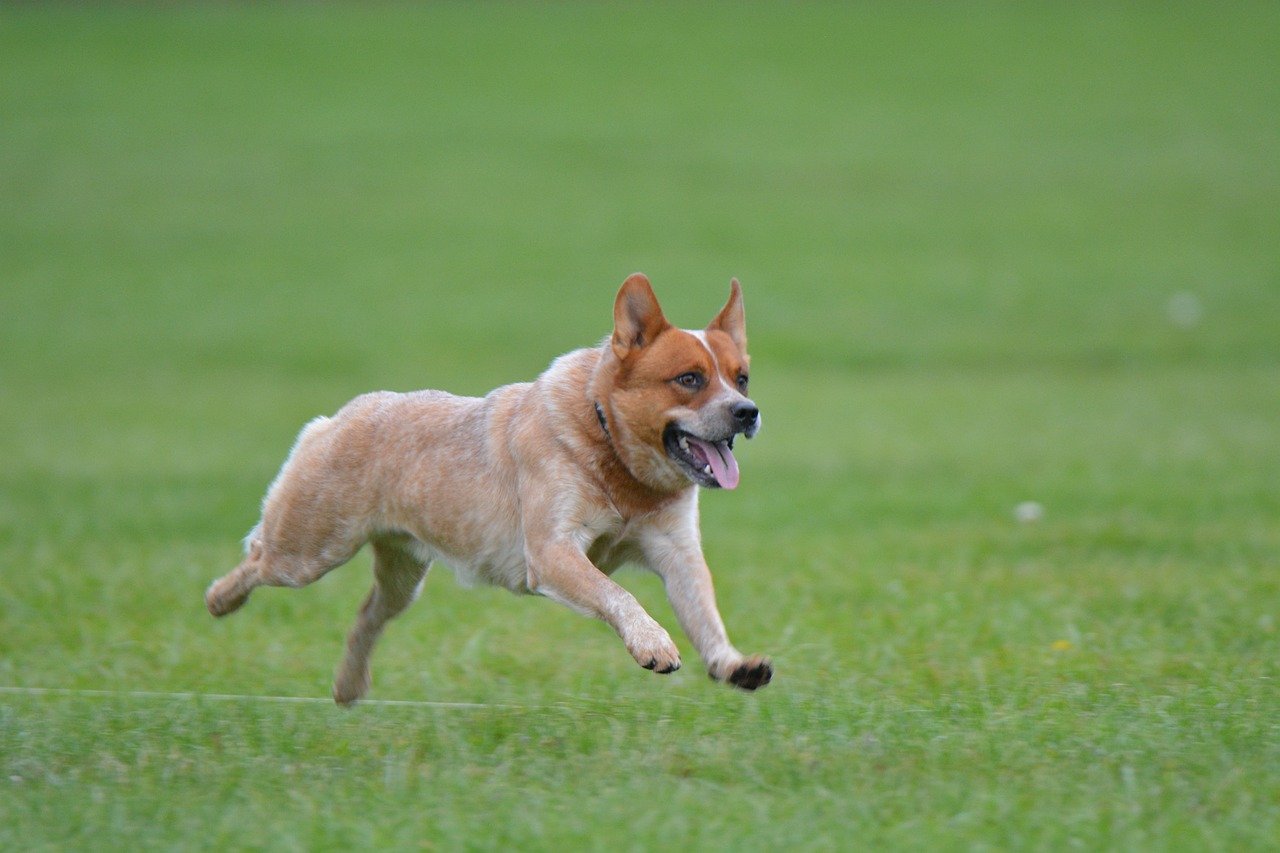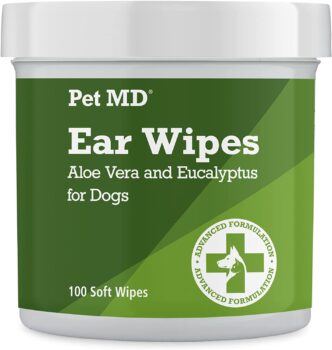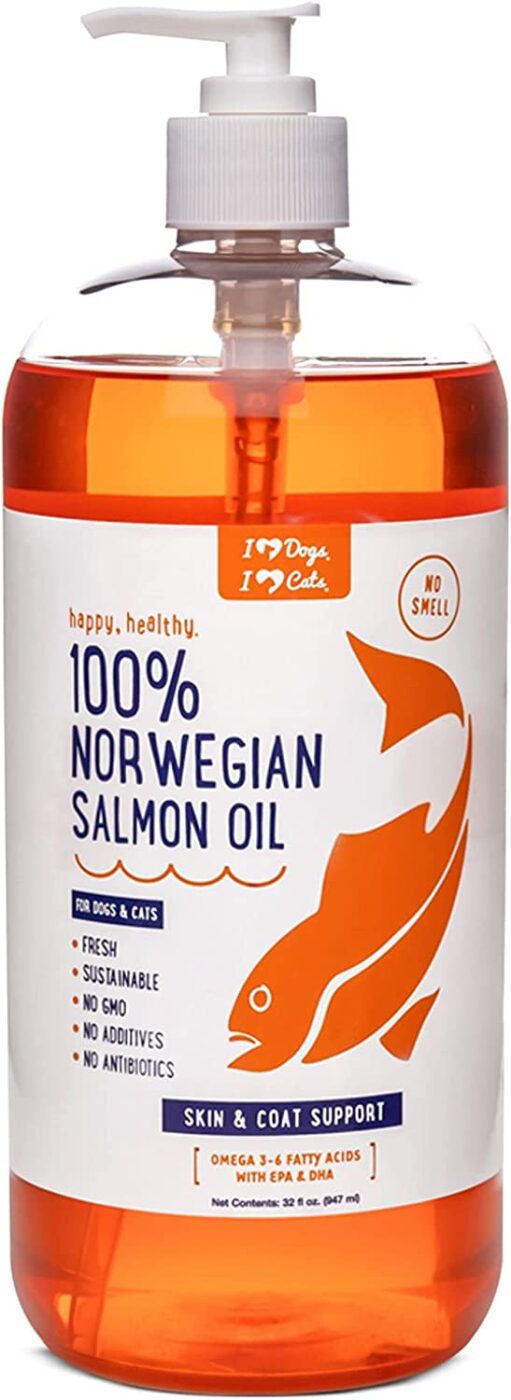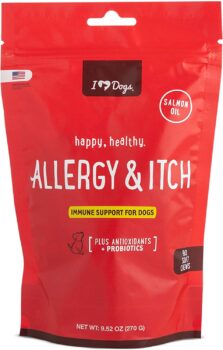Renowned for their intelligence, agility, and robustness, Australian Cattle Dogs, also known as Blue Heelers, make wonderful pets. Their acute sense of hearing is instrumental in their working abilities. To maintain their well-being and auditory health, it is essential to learn how to prevent and treat ear infections, which are a common issue in this breed. This article will explore 11 effective strategies, highlighting the benefits of Omega-3 in their diet to combat allergies.

iHeartDogs is reader supported. Some of the links below may be paid affiliate links, where we receive a small commission on a product at no additional cost to you.
1. Regular Ear Cleaning and Checks
One of the most effective ways to prevent ear infections in your Australian Cattle Dog is to maintain a routine of regular ear cleaning. Always check for signs of infection, such as redness, excessive earwax, or a bad smell. Use a vet-approved ear cleaner to remove any debris gently.
Our favorite ear cleaner is these PetMD brand ear wipes on Amazon.
2. Complete Drying Post Baths and Swimming
Australian Cattle Dogs love water play, but moisture in their ears can lead to infections. Therefore, make sure you thoroughly dry their ears after baths or any water-related activities.
3. Incorporate Omega-3 in Their Diet
The inclusion of Omega-3 fatty acids in their diet can significantly help manage allergies that often lead to ear infections. Omega-3 works as an anti-inflammatory agent, strengthening the immune system. It can be obtained from cold-water fish, flaxseeds, or Omega-3-rich dog food.
We’re fans of this Norwegian salmon oil on Amazon. It’s a bright orangish-pink color and has no fishy smell at all due to it’s ultra high purity.
4. Frequent Vet Visits
Regular check-ups with a vet can help identify any early signs of ear infections. The vet can also professionally clean your dog’s ears, preventing potential problems.
5. Avoidance of Allergens
Identifying and avoiding allergens is crucial as allergies often result in ear infections. Common allergens may include certain foods, dust mites, or pollen. Reducing your pet’s exposure to these can help prevent infections.
A few good supplements to help your dog’s allergies are apple cider vinegar, quercetin, and colostrum, all of which are found in many natural allergy supplements like this one.
6. Up-to-date Vaccinations and Parasite Control
Ensure your Australian Cattle Dog is up-to-date on all vaccinations and regular parasite control is maintained. A healthy immune system can effectively fight off infections, including those of the ear.
7. Prescription Medications
If an ear infection does occur, your vet may prescribe medications such as antibiotics or antifungal drugs. Make sure to follow the correct dosage and complete the full course of the treatment.
8. Consider Surgery for Chronic Cases
In some severe or chronic cases, surgery to improve ear canal drainage may be recommended. Consult your vet to understand all the pros and cons before opting for this route.
9. Probiotics for Balanced Gut Health
Probiotics can help maintain a balanced gut microbiome, essential for a healthy immune system. Including probiotics in your dog’s diet can strengthen their immune system, making them more resistant to infections.
10. Use of E-Collars
E-collars can be beneficial if your dog persistently scratches its ears during an infection. It can prevent further aggravation and speed up the healing process.
11. Maintain Overall Hygiene
A clean living environment plays a significant role in preventing infections. Ensure your Australian Cattle Dog’s bedding, toys, food, and water bowls are regularly cleaned.
FAQs on Ear Infections in Australian Cattle Dogs
1. Q: What signs should I look for if I suspect an ear infection?
A: Signs include frequent scratching or pawing at the ear, shaking of the head, abnormal discharge, swelling, redness, and a foul odor. Contact your vet if you notice any of these signs.
2. Q: Are Australian Cattle Dogs more prone to ear infections?
A: While any breed can develop ear infections, Australian Cattle Dogs are relatively more prone due to their high activity levels, which often involve exposure to water and dirt.
3. Q: How frequently should I clean my Australian Cattle Dog’s ears?
A: For healthy dogs, a weekly cleaning should suffice. However, if your pet has a history of ear infections, more frequent cleanings may be necessary.
4. Q: Can diet prevent ear infections in Australian Cattle Dogs?
A: A balanced diet, rich in Omega-3, can boost your dog’s immune system, helping prevent ear infections. Omega-3 helps reduce inflammation associated with allergies, a common cause of ear infections.
5. Q: Can ear infections lead to permanent damage?
A: If left untreated, ear infections can cause severe issues, including hearing loss. Therefore, prompt treatment is crucial.
6. Q: Is it safe to use human ear infection medicine on my dog?
A: No. Always use medicines prescribed by your vet, as human medicines may not be safe for dogs.
7. Q: What allergens commonly affect Australian Cattle Dogs?
A: Common allergens include certain food ingredients, dust mites, mold, pollen, and some cleaning products.
8. Q: How can I incorporate Omega-3 into my dog’s diet?
A: Omega-3 can be added through fish oil supplements, flaxseeds, or specially formulated Omega-3-rich dog food.
9. Q: Can I prevent ear infections in my Australian Cattle Dog?
A: While not all ear infections can be prevented, regular cleaning, a balanced diet, and limiting exposure to allergens can significantly reduce the risk.
10. Q: What should I do if the ear infection keeps returning?
A: Recurrent ear infections may indicate an underlying problem, like allergies or an anatomical abnormality. It’s important to consult your vet for a comprehensive examination.
By understanding the causes and preventive measures for ear infections in Australian Cattle Dogs, you can help ensure your faithful friend remains healthy and happy. Always remember, early detection and treatment are key to preventing long-term damage.



 Toledo, United States.
Toledo, United States.